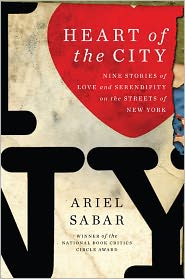
The entry begins:
There will come a time when George Lucas will deliver on his alleged promise (threat?) to cast movies using digitally resurrected, long dead actors. When that moment arrives, it would finally be feasible to cast the movie I see in my head when I think about One True Sentence, the fourth Hector Lassiter historical literary thriller — one peopled by pop culture titans who have left indelible images of themselves in readers’ heads.Learn more about the author and his work at Craig McDonald's website and blog.
The novel is set in 1924 Paris, but the characters who cross my pages left myriad photos — and even some grainy film footage — of themselves to posterity. We all know how Hemingway, Gertrude Stein, Alice B. Toklas and other City of Lights luminaries looked back then.
My series character, crime novelist and screenwriter Hector Lassiter, has always been personified by the actor William Holden for me. In fact, in several books, his resemblance to Holden is remarked on (in a still-to-be-published Lassiter novel, a key plot point revolves around a seventy-something Lassiter actually posing as Holden). So, in that George Lucas virtual world, Lassiter would be played by a young Holden. His love interest, the darkly enticing mystery writer, Brinke Devlin, would be portrayed by the silent-screen siren who largely inspired her, Louise Brooks.
But, for now (and to the possible chagrin of Mr. Lucas), we have to content ourselves to casting living actors. That being the case, for Texas-born Hector Lassiter I envision Texas-born actor...[read on]
Read "The Story Behind the Story: One True Sentence, by Craig McDonald" at The Rap Sheet.
The Page 69 Test: Toros & Torsos.
The Page 69 Test: Head Games.
The Page 69 Test: Print the Legend.
My Book, The Movie: Print the Legend.
The Page 69 Test: One True Sentence.
Writers Read: Craig McDonald.
My Book, The Movie: One True Sentence.
--Marshal Zeringue









































